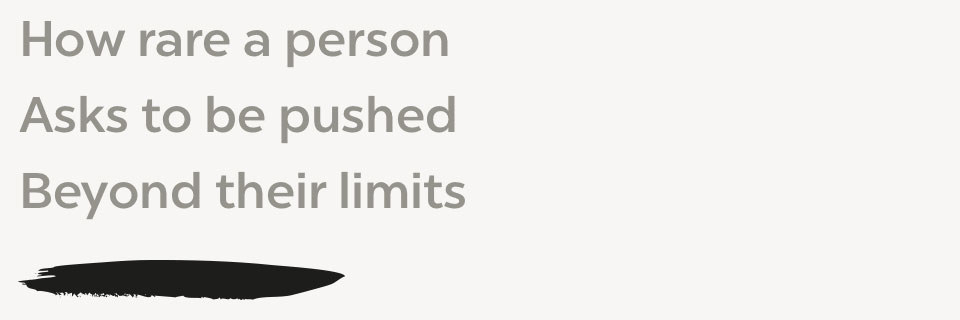Question: How do you know if you can push your people further?
Answer: They will tell you, if you know how to listen.
Recently I was messaging with a Clear and Open member, let’s call him Andy. It went like this. This is a good example of the power of asking questions.
Josef: “Relook at the work you just sent me, and tell me how you think it looks to me.”
Andy: “I would say it’s rushed and I didn’t really dig into the work.”
Josef: “I agree, so what do you want to do now?”
Andy: “I’ll redo it. When I sign into clear and open [sic] it only brings up my dashboard of the courses. I had to send the paper [it wasn’t a paper] from slack to my email and then threw [sic] the docs”
Huh? The convoluted sentence wasn’t even punctuated. What exactly is the problem? What help does he need?
Notice how the very thing he just confessed to, he did again. Pause and consider for a moment what you would do before reading on.
This was my response:
“I’ve read your email twice and I’m still squinting my mind to try to understand it. I like you, Andy. You’re strong, willful, and I can tell you have courage.
So here’s the thing. I’ve been trying to help you for a long time, and you continue to communicate with me using the bare minimum words and effort. Why is that?
I’m drawing a line now. It’s on you to make yourself easier to help: prove that you actually want to grow and change in some way by showing up with behavior that would match that intention. But you continue to send me half-hearted efforts, and emails so weak with rigor that you’re misspelling, not punctuating, and not being at all specific—in other words, blatant disengagement. Read what you wrote to me and look how much of the work you hand to me to figure out. I imagine you do this with your coworkers as well. Do you?
Send me 500 words about how your situation looks to you by end of day Wednesday and what you want to do about it. No more messing around. I won’t accept anything less than your best. Why are you?
This is all for you, Andy, what’s in the way of you using it?”
His response was a responsible “Thank you for the push,” and I received a very conscious and sober self-assessment before the deadline. It was like a different person showed up.
How do you know when pushing someone this hard is productive? Of course, you never know for sure, but in this case it was easy: because Andy identified, on his own, the issue he needed to work on.
If a person has the ability to mentally identify what’s not working, then it’s fair game to hold them responsible for embodying it. This “fairness” is feelable, and they will usually not resist. However, if you hold someone accountable to something they are completely unconscious of, they feel the relative unfairness of that and will resist.
We all have at least an intuitive sense of our embodiment gap: the ways in which we know better than how we act. When you make someone’s job a venue for closing that gap, you’re developing them. When you don’t, you supervise them like a cog in a machine and hope they grow by accident.
Andy realized in his 500 words that his disengagement was a strategy he adopted during a bad marriage where asking too many questions led to disappointment. He chose muted complacency over the uncomfortable truth—not uncommon, and powerfully self-destructive.
When I saw that Andy knew his pattern and was rolling it out in the same breath, I heard someone say “I’m ready to face this head on.” What I see most managers do, to avoid the discomfort of confrontation, is adopt the same compensational strategy that Andy did: numb themselves down to complacency and hope one day things change and they “find better people.”
Almost always, the mythical “good people” managers look for already work for them. They’re just waiting for you to demand they give you that goodness because some old story taught them to do the minimum to get by. And as long as their manager is doing that, why not they also?
But how do you wake yourself up from your own slumber? Without help, it can take a long time, or perhaps never happen. This is why people who are serious about losing their self-destructive stories hire people who aren’t afraid to hold up a mirror. Do you need a mirror like that in your life? Do you dare to ask to be pushed beyond your limits?


